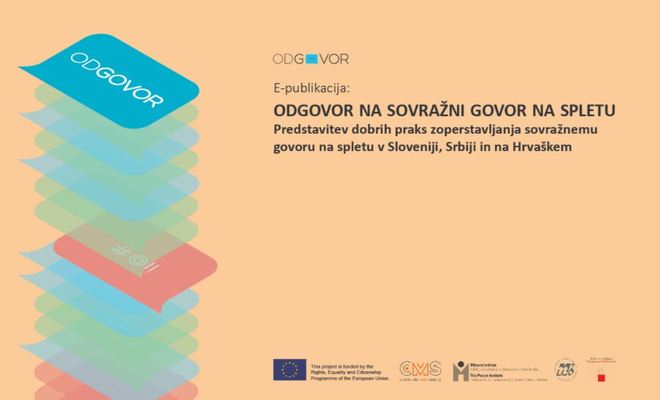Countering Hate Speech Online

The spreading of hate speech online is making it increasingly difficult to secure human rights, to protect human dignity, and to maintain the democratic standards of public communication and debate.
This troubling form of public communication calls not only for the legal system and media regulators to react to instances of illegal hate speech. It reveals the need for engagement and responsiveness on the part of other institutions and sectors – political institutions and actors, media and communications platforms, civil society, educational and research institutions, and not least individual citizens.
The organizations partnered under the project “BEHAVE – SEE Beyond Hate: Learning and Acting to Counter Hate Speech Online in South East Europe” focused the initial study on the practices and actors battling hate speech in the target countries – Croatia, Slovenia, and Serbia. First, we summarized the definitions of hate speech used in the three countries and reviewed the available analyses of (online) hate speech. We identified the important actors countering (online) hate speech in these countries and collected a wide array of related good practices. We concluded our research by carefully studying and describing the few anti-hate speech practices that stand out due to their extent, range, creativity, complexity and duration.
Apart from practices from Croatia, Slovenia and Serbia, we studied and summarized a few examples of online hate speech curbing measures from other European countries and at the cross-national, European level.
Our research was conducted between April and June 2020.
Our review of good practices aims primarily to advance the exchange of knowledge and experience between relevant institutions and organizations in the three target countries. The publication of the review of good practices will be followed by a regional conference. In addition, the purpose of the publication is to make experts and the broader public aware of the spreading of hate speech online and to encourage them to act.
In seeking to share knowledge and research, to act against online hate speech, and to develop educational programmes, the “BEHAVE ” project links four partner organizations: two from Slovenia – the Peace Institute in a coordinating role and the University of Ljubljana, Faculty of Social Sciences, with its ‘Spletno oko’ hotline, one from Croatia – the Centre for Peace Studies in Zagreb—, and one from Serbia – the Novi Sad School of Journalism.
The project is financed by the EU’s Justice, and Rights, Equality and Citizenship programme.
This publication is available in Croatian, Serbian and Slovenian. The publication in English presents a summary of the good practices that were given a detailed presentation in a publication in the languages of the target countries.



